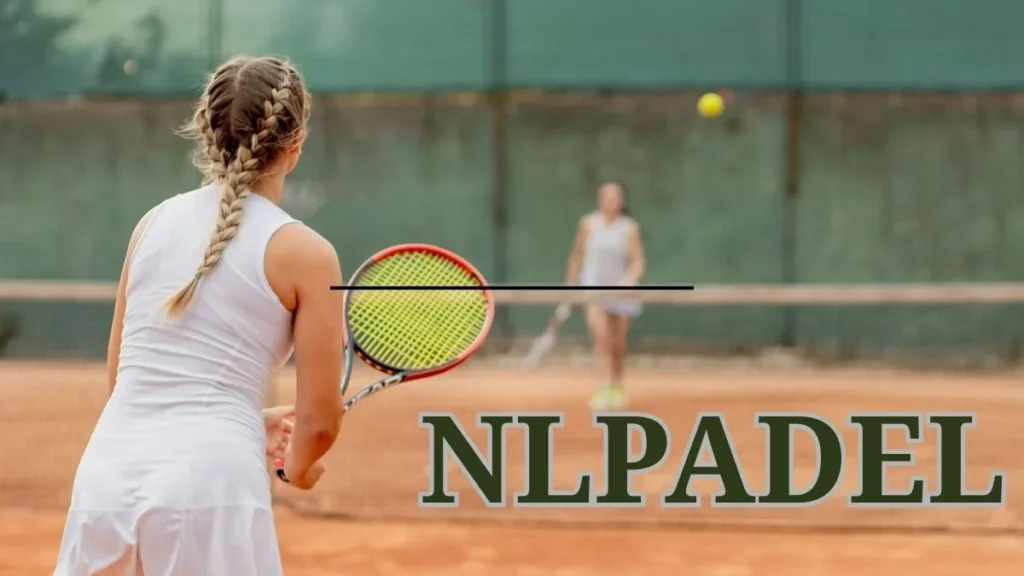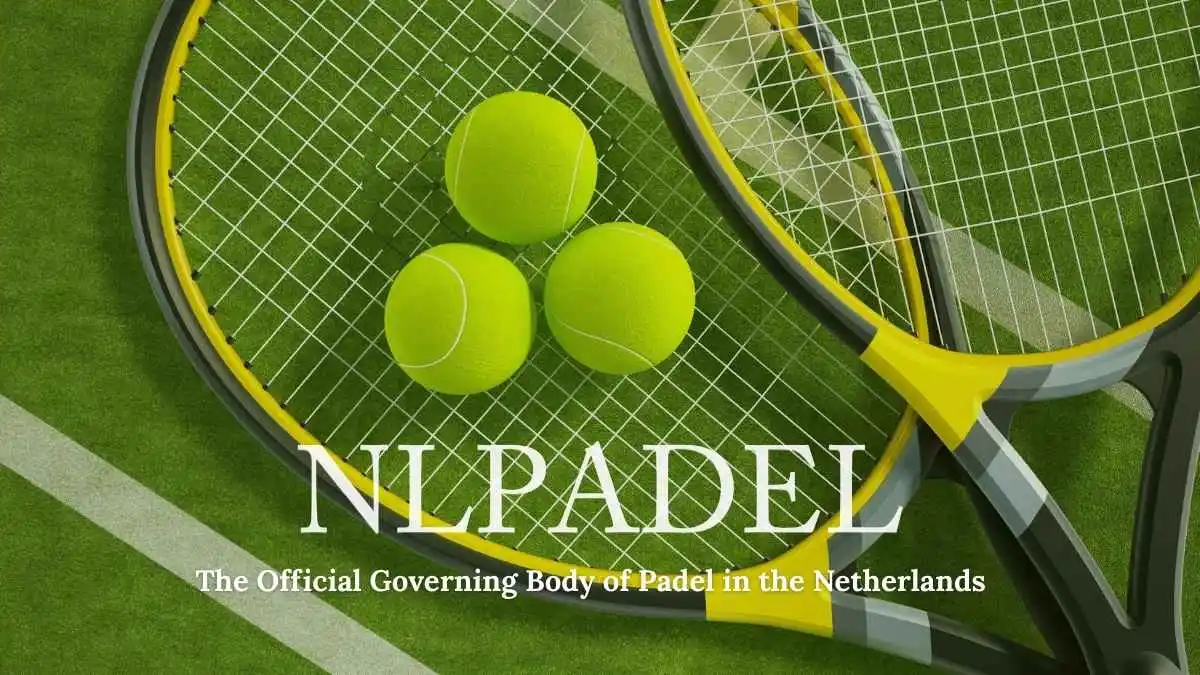NLPadel is the official governing body responsible for developing and promoting padel in the Netherlands. Operating under the Royal Dutch Lawn Tennis Association (KNLTB) since merging with the Dutch Padel Federation (NPB) in 2020, it serves as the central hub for the sport. NLPadel organizes competitions, maintains player rankings, certifies coaches, and supports grassroots initiatives like the mobile “Padel Lab.” Its mission is to make padel accessible, sustainable, and a thriving sport nationwide.
The Origins of NLPadel
Padel was introduced to the Netherlands in the early 2000s but remained a niche activity for years. The sport was initially overseen by the Dutch Padel Federation (NPB). A significant milestone occurred in 2020 when the NPB merged with the KNLTB, creating NLPadel as the official national body.
- Strong governance and infrastructure.
- Funding and resources from an established sports federation.
- Professional expertise in event management and player development.
As a result, NLPadel became the central hub for padel in the Netherlands, ensuring its growth matched international standards.
NLPadel’s Core Responsibilities
1. Organizing Competitions
NLPadel manages official tournaments at the local and national level. These competitions include:
- National championships.
- Junior tournaments for young players.
- Recreational events to engage beginners.
This structured calendar provides opportunities for players of all levels to test their skills and enjoy the sport.
2. Maintaining Player Rankings
A transparent ranking system ensures fairness and motivation. Player rankings determine tournament seedings, track performance, and inspire athletes to progress from grassroots to elite competition.
3. Coach Certification and Education
Quality coaching is essential for long-term growth. NLPadel offers certification programs covering:
- Technical and tactical training.
- Player safety and inclusivity.
- Modern teaching methodologies.
This ensures Dutch padel coaches meet professional standards.
Padel Lab: Bringing the Sport to Communities
One of NLPadel’s most innovative projects is the Padel Lab, a mobile initiative introducing padel to new audiences. With portable courts and professional guidance, Padel Lab makes the sport accessible to schools, community centers, and underserved areas.
- Youth Development: Inspiring the next generation of players.
- Inclusivity: Making padel available to those without nearby facilities.
- Awareness: Increasing visibility and interest in the sport nationwide.
Collaboration with KNLTB
NLPadel operates under the umbrella of the KNLTB, which has more than a century of experience in tennis governance. This partnership provides:
- Shared infrastructure for event management and player development.
- Dual membership opportunities for tennis and padel players.
- Stronger financial and organizational backing.
The synergy between tennis and padel has also encouraged many Dutch tennis clubs to build padel courts, boosting participation and memberships.

NLPadel vs Other National Padel Organizations
| Aspect | NLPadel (Netherlands) | Other Federations (Spain, UK, France) |
| Governance | Under KNLTB since 2020 merger with NPB | Spain: independent body (FEP); UK & France: under tennis federations |
| Competitions | National championships, junior events, recreational tournaments | Spain: largest domestic circuit; UK & France: smaller national leagues |
| Player Rankings | Transparent national ranking system | Spain: highly competitive global rankings; UK & France: integrated with tennis systems |
| Coach Certification | Structured programs on tactics, inclusivity, and safety | Spain: elite coach training; UK & France: adapted from tennis coaching |
Growth of Padel in the Netherlands
The Netherlands is now one of Europe’s leading padel nations. Growth has been fueled by:
- Accessibility: Easier to learn than tennis, attracting beginners.
- Social Appeal: Doubles format encourages fun and camaraderie.
- Cross-Generational Reach: Popular among children, adults, and seniors alike.
- Club Integration: Many tennis clubs now feature padel courts.
With hundreds of courts built in recent years and participation soaring, NLPadel’s structured approach ensures this growth remains sustainable.
International Role
As the national governing body, the Dutch Padel Association represents the Netherlands in international federations and championships. By sending teams to European and World Padel Championships, it:
- Strengthens the Netherlands’ reputation on the global stage.
- Inspires domestic players to aim for elite competition.
- Provides a clear pathway from grassroots to professional padel.
Focus on Grassroots and Inclusivity
NLPadel emphasizes inclusivity and community engagement through initiatives such as:
- Youth Programs: Integrating padel into school curricula.
- Women’s Participation: Hosting events and workshops for female players.
- Community Access: Partnering with municipalities to provide public courts.
- Health and Fitness: Promoting padel as a fun and social way to stay active.
By framing padel as more than just a competitive sport, NLPadel positions it as a lifestyle activity that supports health and social well-being.
Challenges and Future Outlook
Despite rapid growth, NLPadel faces challenges such as:
- Limited availability of courts in some regions.
- High infrastructure costs.
- Competition with established sports like tennis and football.
Looking ahead, the organization aims to:
- Expand padel facilities nationwide.
- Strengthen youth development programs.
- Increase international representation.
- Promote sustainability in court construction and operations.
With these strategies, the Dutch padel association is set to make the Netherlands one of Europe’s strongest padel nations.
FAQs
Q1. What are NLPadel’s main responsibilities?
Its core functions include organizing competitions, managing player rankings, certifying coaches, and supporting grassroots initiatives like the Padel Lab.
Q2. What is the Padel Lab?
The Padel Lab is a mobile project that brings padel to schools, communities, and underserved areas using portable courts and coaching.
Q3. How is padel growing in the Netherlands?
The number of padel courts and players has surged in recent years, with strong support from NLPadel and tennis clubs integrating padel facilities.
Conclusion
Padel is no longer just a trend in the Netherlands; it is becoming a cultural mainstay. At the heart of this evolution is NLPadel, guiding the sport with responsibility and inclusivity. From managing competitions and rankings to pioneering projects like the Padel Lab, the Dutch Padel Association ensures that padel is accessible, engaging, and sustainable. As more courts open and participation rises, the Netherlands is on track to become a powerhouse in the global padel community.

James Whitaker brings a wealth of knowledge and creativity to content writing across various niches such as health, technology, personal finance, and digital marketing. Known for his ability to simplify complex topics and deliver audience-centric content, he helps brands build authority and trust.

